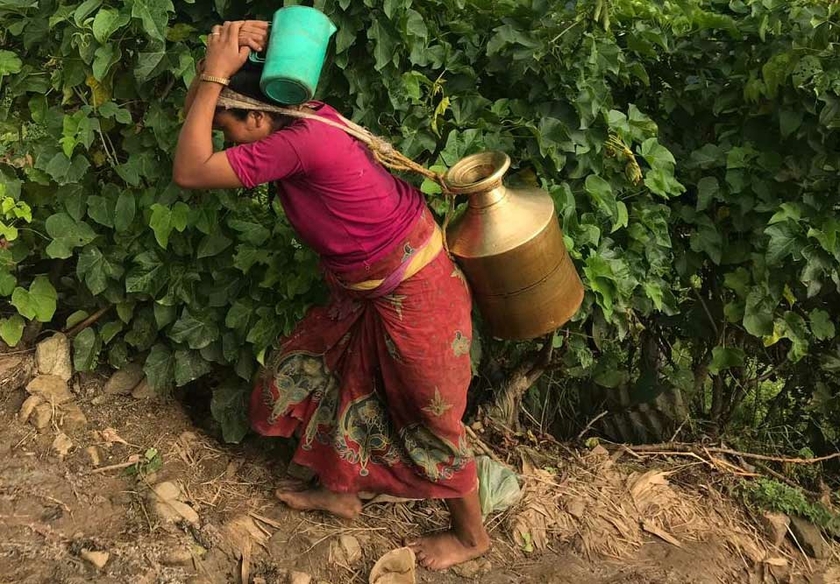Department Sanitation, Water and Solid Waste for Development
Assessing the impact of carrying water on women’s health

Improved access to safe drinking water and sanitation are important determinants of human health. For decades the benchmark for improving access to drinking water as stated in the Millennium Development Goals has been community level access. Much greater health and economic benefits can be generated if access to safe drinking water is provided at the household level instead of community level. First, household water access will increase the amount of water available for hygienic practices in the household therewith reducing the amount of pathogens in the household environment. Second, drinking water itself will be less prone to recontamination during transport and storage if it can be collected at the tap in the household, and third, the tremendous work and health burden women are facing to transport water from the water supply point in the community to their homes will be reduced. This aspect is accounted for in the Sustainable Development Goal 6.1. where the definition of safely managed drinking water is drinking water from an improved source that is located on premises, available when need and free from faecal and priority chemical contamination.
This project aimed at quantifying the third aspect of health burden i.e. understanding health constraints women in Nepal are facing by carrying water from the community source to their homes to quantity the benefit that can be generated by increasing piped household level access to safe drinking water. The study was conducted in collaboration with public health researchers from Kathmandu University School of Medical Science and social psychologists from the University of Bern.
